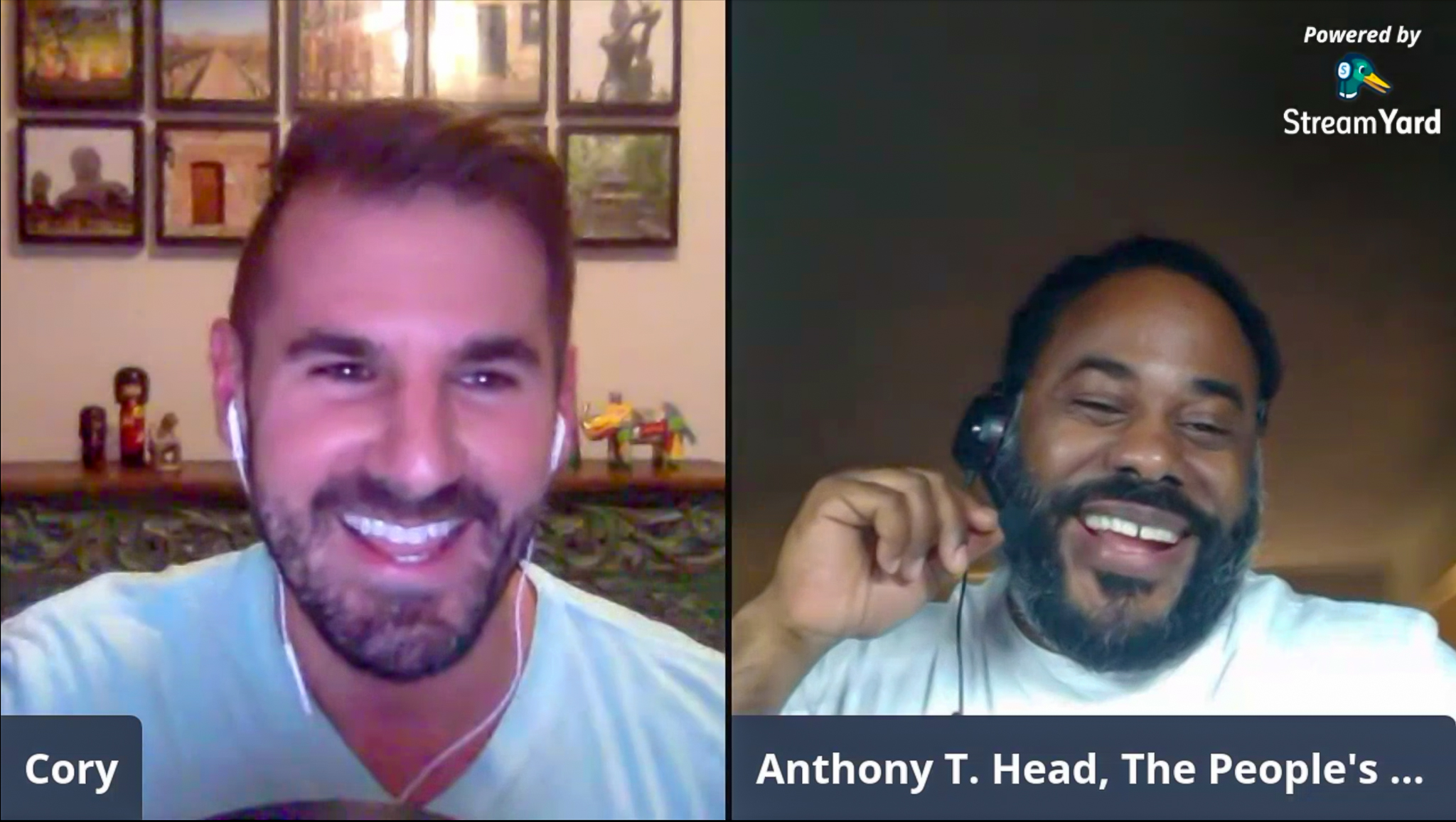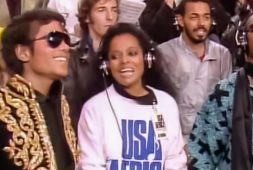
I grew up in Montpelier, Ohio, a rural town of 3,500 people comprised of 96% white and 3% people of color. All of the schools we played against in sports were all white. It was very rare to interact with someone that didn’t look like me.
In fact, my mother grew up on a farm outside a smaller, more rural town nearby. Her childhood was spent mostly in the country helping out on the farm and going into town to go to school. Her mother’s favorite all time movie was Gone With the Wind (a movie that was recently paused on HBO Max because of its pro-Confederate propaganda).
I remember a day in the 1980s. My mother was driving our blue station wagon one hour to Toledo, Ohio, which was considered a big city to our small town. Once we exited the turnpike and began driving through stoplights in a more urban area to reach the mall, I heard the car doors lock.
Click.
I turned my head to look out the window and I could see a black guy standing on the corner. “Why did you lock the doors?” I remember asking my mom.
“Well, we are in the big city now. It isn’t like our small town,” she said.
“Was it because that guy is black?” I asked curiously.
“Well, you never know. It’s just better to make sure we are safe,” my mother replied.
I thought at an early age that this was strange to lock the doors just because we saw a black person in Toledo, but it made sense to me to be safe. I can remember giving her a hard time after it happened again.
The only television news stations we had were based in cities like Toledo. The local news reported was seldom positive. Crime and gun violence stories seemed to hold more of a lasting impression for those that watched, like my mother.
While some of the news stories involved white people, many involved black people living in urban areas. We all know the news does not necessarily represent the majority of situations or a group of people as a whole, but if this is the local news you choose to watch (and this was before the internet provided access to other news sources), then how is a different impression or viewpoint supposed to be triggered?
I’m not arguing that this is right, but I’m saying that we make choices on what to believe and what not to believe. Our environment and social surroundings certainly can influence our thinking. My mother didn’t know anyone of a different race until she began teaching some of her students in her classroom.
My First Black Friend
I met Anthony Head my freshman year at Ball State University when I became a Student Government senator for my residence hall. Anthony and I both lived in the Honors College dormitory and as it turns out, we both majored in Finance. We casually knew each other the first two years but it wasn’t until our junior year when our friendship really began.
Anthony and I, along with two other women in different sororities, formed a slate to run for University-wide election for the executive positions of the Student Government Association. We went on to win the election.
My mom and dad visited campus the night we won the election. My mom was a hugger and embraced my entire slate before we learned the results. She was so proud of all of us. It didn’t matter to her that Anthony was black.
My mom was not racist. In fact, I know she loved everyone as they are. I remember the night I came out to her a couple weeks after I graduated from college.
“So you are just really happy?” she asked naively. I don’t think she really knew what the word gay meant, but I knew that she loved me as I was. It didn’t matter if I was attracted to men or women. (Read the full story in my memoir which is FREE on Kindle Unlimited for one week). Even though she grew up on a farm in rural Ohio, probably never knowing a gay person (at least not confirmed) or a person of color, she only saw people. She didn’t see differences.
I share my experiences with my mother as a way to share that our family upbringing and environment during our formative years can shape our viewpoints at an early age. My mother could have easily allowed her all-white upbringing and regional media exposures to shape her adult beliefs. But she listened to her heart as she had new experiences. She learned. She knew what was right and wrong from within.
My friend could have been George Floyd
I recently interviewed Anthony for my new podcast last month, before Memorial Day weekend, when George Floyd, a black man who was murdered at the hands of police officers in Minneapolis, Minnesota. Anthony shared a story about how he was tackled, tased and confused for another black man of the same name. He was held in a choke hold and the officer whispered into his ear, “had you been in the streets, we would have killed you. Now you are going to jail mother-f&$#-er.”
Anthony spent 30 days in the Montgomery County Jail in Dayton, Ohio. He had two degrees, owned two homes, was a business consultant, owned two companies, yet spent time in jail after being tased seven times because he was African-American and mistaken for another black man with a similar name.
Click here to listen to Anthony’s full interview.
After George Floyd was murdered, I couldn’t help but think this could have happened to my good friend Anthony. Anthony could have been George Floyd. In fact, there are many George Floyd situations out there that have never been publicized.
It sickens me to think this could easily happen to anyone I know, white or black.
In the weeks after George Floyd died, anger, frustration, fear, uncertainty erupted around the world. And rightly so. People took to the streets to protest, in every corner of the globe. Even in the rural county I grew up in, protesters were there on the main corner in the county seat. Social media has blown up.
As a white man, I watched this all unfold and I’ve been overwhelmed. If I’m overwhelmed as a white person, I can’t begin to imagine how must people of color feel. I want to help. But how? How can this be fixed? What can I do?
Will changing my social media picture to all black make a difference? All of my social media followers all feel the same way. And then I got push back on certain things not to do on social media. It became confusing. I wanted to write a blog about it or post something on social media. But I would rather talk to someone about.
Since I just interviewed Anthony several weeks prior, I thought having another conversation with him specifically about recent events that have taken place, not only George Floyd, would help me a lot.
And it did. I learned more than I thought. These are my biggest takeaways that I hope will help you too:
- Listen. Listen to the Black community. Understand their experiences and pain.
- Learn. Read books (have your children read books), listen to podcasts, do anything you can to fill any gaps in your knowledge about systemic racism.
- Make change. Commit to make changes you need to make in order to become more inclusive (individually, for your family and for your company or workplace), to be more supportive of the Black community, and to do your part to end systemic racism.
Click here to listen to my full conversation with Anthony.
I’ve heard many black friends say that if you don’t do or say anything, then you are complicit. This sounds harsh, but now understand why it’s true. If your child or someone you know was getting beat up or even being killed, would you watch and not do anything? Silence is a form of communication. They say non-verbal communication is more impactful than verbal communication. So if you don’t say anything, then you are saying that what is happening is ok.
Many think that “this isn’t my problem.” If that was your son, daughter, mom or dad, would that be your problem? It is easy to think this is for someone else. This could happen to any of us just like Anthony said during our conversation.
Can we all agree that no one should be killed in the hands of police? Take away all other factors and political viewpoints. If that was your child or parent or best friend, do you believe it is ok to knee on your loved one’s neck for 8 minutes after they repeatedly call out for help that they can’t breath?
I’d be shocked if you thought that was ok.
This current situation – and not only what is happening with George Floyd, but also all racist related situations – is your problem.
My conversation with Anthony helped me greatly and I think it could help you too. I’m going to continue my quest to learn and understand. My mother taught me to have empathy and compassion for others not only for people like us but also for people that are different from us. It is important now more than ever to strive to understand. Even if you may not understand now, spend time to learn. Don’t just think that because no one around you is different from you means that this isn’t your problem. Help those around you understand that this is their problem too!
Be a visible ally to the black community and to all people of color. If you see something, say something. If you hear something, say something. It’s no longer ok to just sit back and watch it happen. Listen. Learn. Make Change.


